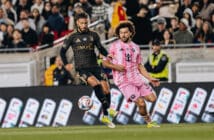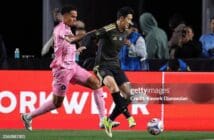Whilst fans would have preferred the Play-Offs, Reading have a chance to get ahead of the game for the new campaign – IF they can learn from past failings…
Wednesday, 28th April marked the birthday of Reading chairman Sir John Madejski as well as that of Dai Yongge, the current majority shareholder.
Now 80, and heading into his 32nd season associated with Reading, the mark Madejski has left on Reading will likely never leave the club. With four promotions, six Play-Off campaigns, three relegations, two ownership changes and construction of a new stadium all occurring during Madejski’s time with Reading, his influence and legacy at Reading as a club and within the community has most definitely lifted him to ‘legendary’ status in the eyes of Royals fans.
But Madejski’s role at Reading is now a back seat one. The man who famously bought the club for 10p a share in 1990 handed over the financial reins to Anton Zingarevich (the less said, the better) in 2012, before Sumrith ‘Tiger’ Thanakarnjanasuth took control in 2015. Zingarevich nearly took Reading to bankruptcy and Tiger to the Premier League, but Dai Yongge, who purchased a 75% stake in the club in 2017 under his holding company Renhe Sports Management, is arguably in the strongest position of any Reading owner in the last ten years.
Reinforced by a vibrant, young squad and a solid debut season from manager Veljko Paunovic, Yongge wouldn’t be out of his mind to be expecting a top-six finish next season – and perhaps even promotion. Of course, the full damage of COVID-19 and potential trouble with FFP may rule out the financial factor as one that Yongge can fall back on. But, in terms of the squad, staff available and transfer policy in the most notable ‘failure-to-push-on’ campaigns, namely 2013/14 – 2014/15 and 2016/17 – 2017/18, Yongge’s Reading have the stronger hand.
2013/14 saw Nigel Adkins’ Reading drop out of the top six after a 2-2 draw with Burnley on the last day of the season.
A 92nd minute Leonardo Ulloa strike at the City Ground in Brighton’s away clash with Nottingham Forest condemned Reading to another season in the Championship, but the implications were far worse than they seemed explicitly.
Zingarevich had, by this point, not been seen at the Madejski Stadium for nearly a year. Rumours of the club falling into administration were intensifying. All things considered, Adkins’ hadn’t necessarily done a bad job in his first full season in Berkshire, but by no means had he done a good one. Reading’s squad were good enough to go back up, and didn’t.
However, it’s unfair to pick the summer of 2014 and 2014/15 campaign apart in an overly critical manner. Adkins’ hands were tied, Reading were in dire financial straits, and, quite, simply, they didn’t have the resources to push on. As such, it’s hard to make comparisons between the position of Reading now and then.
The end of the 2016/17 campaign, however, is arguably a little more didactic.
Jaap Stam’s first managerial season ever had been a resounding success. Yes, Reading had once again missed out on promotion – this time in a much more devastating manner – but a Play-Off final appearance can hardly be considered a failure. Stam was linked with Premier League jobs, and several of the Royals’ squad with Premier League moves – most notably, Liam Kelly. The 2017/18 campaign seemed like it could be Reading’s year.
And oh how Reading failed.
Stam’s second season in charge could actually go down as the worst Reading season of the 21st century. The football was painful, the players lost, and the club in complete and utter turmoil from top to bottom, torn apart by ex-Chelsea CEO Ron Gourlay.
‘The chief executive came in from large enterprises and he didn’t get the culture of Reading. Reading is largely a parochial club, it’s deeply set in the hearts and minds of community and I don’t think that really penetrated and I think that was where it went wrong in my humble opinion. He had the ear of Mr Dai but it was strange and he didn’t really bother with hearts and minds which is what you have to do’ – Sir John Madejski via The Tilehurst End
Or, as one no-nonsense wordsmith detailed on Gourlay’s Wikipedia page, ‘On 10 July 2017, Gourlay was appointed as CEO of Reading, leaving his role with immediate effect on 19 November 2018, after shocking ineptitude on his behalf stitched them up and left them struggling to this day to recover financially’.
Anyway, the point has been made.
The summer of 2017 is one that Dai Yongge and Veljko Paunovic should analyse, and analyse well. It was arguably the transfer window that damned Reading on the pitch, and the attitude of Stam himself that did further damage. The Royals were wandering into oblivion on and off the pitch, simply because they didn’t capitalise on the mood and performances of the previous season. They didn’t push on, at all.
But Reading have a big chance to do just that next season. The 2017/18 campaign should teach them what not to do.
Veljko Paunovic’s criticisms this season have mainly surrounded team selection, or more accurately, substitutions. His preferred possession-based playing style has been fairly effective – most definitely at the beginning of the season – but in recent months, most of the Royals’ victories have come through graft, and simply superiority in personnel rather than a defined outlook.
As such, the first area that Paunovic needs to analyse is simply how he really wants Reading to play. One could argue that trying to further impose a true possession-based style would be worthless, but then again so would completely abandoning it. Heading to extremes isn’t a good idea in any walk of life, but Paunovic needs to commit to one or the other. Sitting in the middle ground makes transfer policy harder, distorts identity, and leaves players confused at what expectations are.
Inasmuch as committing to a style is important, flexibility is something that should never be overlooked. However, unlike with Stam who was strangely obsessed with possession and for some reason refused to understand that sitting near the relegation zone tended to be a sign that things weren’t working, Paunovic’s flexibility will lie in personnel, rather than style.
One of the Royals’ biggest failings this year has been a lack of squad depth. A bench made up mostly of academy players alongside Sone Aluko and Sam Baldock has proved costly for the Royals, who on many occasions have been crying out for a spark (proven, preferably) from the bench. Reading actually began the 17/18 campaign with a bench of six – an utterly embarrassing feat for a club who, a few months earlier, had been a few penalties from the Premier League.
Which leads us nicely onto transfer policy.
The disappointing end to Reading’s season, for some fans, has undone the progression made. One win in ten games, quite simply, has been a terrible collapse at a crucial stage of the season. It’s clear that the squad are burnt out – mentally and physically.
No Reading manager for quite some time has been judged to have had a ‘plan B’, but this has often been tactical. For Paunovic, that lack of plan B hasn’t necessarily been tactical but rather that, simply, there weren’t enough game changing options on the bench to take a different approach.
Putting COVID and FFP to one side, Reading (if allowed) must strengthen in attack – namely, on the wings. One of Stam’s biggest failings was not replacing ‘out and out’ players with similar others. Take Sone Aluko, for example. Reading were crying out for a clear cut striker – a proper target man figure – given Yann Kermorgant’s injury and Deniss Rakels’ ostracising.
Instead, Reading opted for Aluko, who was in truth a winger – and one that Reading didn’t really need. He’d done well for Fulham the previous season, but Aluko wasn’t effectual in Berkshire because, simply, he wasn’t what was required. He was expected to score goals, but he wasn’t a goal scorer.
Reading do not need a squad overhaul this summer. Paunovic seems to have done well in gelling the squad, bringing it together and focusing on one cause. Reflected in interviews with both players and staff, and in terms of early season performances, this does seem to have had an effect. As such, Reading need to ensure this unity remains.
The club’s 2-0 defeat against QPR on the opening day of the 17/18 campaign saw only six of the eleven who’d started against Huddersfield in the Play-Off final start, epitomising the club’s poor recruitment. Central midfielder George Evans started at left wing back, and winger Pelle Clement up front. Paunovic’s Reading must avoid this by strengthening sensibly – signing players in the positions they really need them in (namely the wings, up front and at left back) rather than buying players for the sake of squad depth.
Prize possessions Lucas Joao and Michael Olise don’t seem to be quite as in demand as they had been around the Christmas period, and Yongge has signalled an intent to keep them at the club. But, they do need something a little different around them – Joao especially. Should Reading cash in on one of the two, they need to reinvest. After all, a fairly healthy figure for Olise still likely won’t be enough to overwrite the club’s mammoth losses. The only way to truly repair Reading’s financial wounds is promotion.
Finally, Reading have got to approach games as if they’d made the Play-Offs this season, rather than as a team who stumbled at the final hurdle.
It can be difficult to carry the ‘success’ of a previous campaign into a new season when the last competitive games played were defeats, or the team struggled. It’s clear that the wind has been completely knocked out of the Royals’ sails in the final two months of the season, and mentally, this doesn’t bode well for the next.
The two areas in which the Royals can help this are arguably Paunovic’s own attitude towards games, and pre-season.
In the summer of 2017, Reading’s pre-season campaign was poor. The Royals didn’t win a game, and regardless of the importance of friendlies, it can’t have aided confidence after the Play-Off defeat. This summer, it’s key that Reading harness some momentum in pre-season and head into the new campaign on the front foot.
Similarly, Paunovic has often alluded to the fact that he treats every single game the same way, regardless of the magnitude of the tie. Whilst this could be seen as a way to take pressure off the players, it’s hard to say that the approach has worked. Too often, Reading have gone into games and started slowly, gone through the motions, and played like the underdogs despite being, for most of the season, a Play-Off side.
You could legitimately argue that Reading have got to start approaching games with a little bit of pressure. A little bit of ‘oomph’ to set them off in first gear. Because, the last thing the club need – and, in reality, the club can handle as a business – will be lacklustre performances, dwindling crowds, and key players losing market value.
COVID is unpredictable, and nobody quite knows how badly their clubs have been hit by the pandemic. But, in the ever-changing world of Reading FC, failure simply doesn’t seem to be an option next season.
Follow us on Twitter @ProstInt
EFL
Reading FC
![Prost International [PINT]](https://prostinternational.com/wp-content/uploads/2021/08/PINTtFontLogoRoboto1536x78.jpg)


